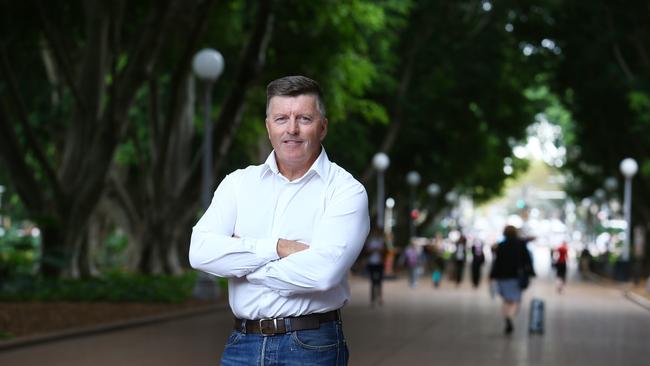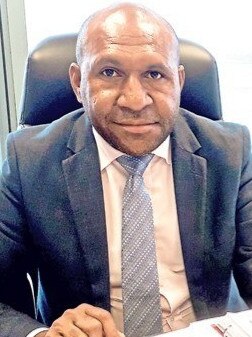Regional alliance to aid trade, security
Ports Australia is looking to build a sustainable regional relationship with our neighbours in the Pacific.

Australia’s extensive ports industry is not just Australia’s trade gateway, the conduit for $1.2bn worth of trade on a typical day — it could be an extension of Australian soft power and influence, too.
Not that Ports Australia, the peak body representing the nation’s ports industry, necessarily views — or would state — it that way, but the organisation has definitely begun engaging with our neighbours in the Pacific.
In October last year, Fiji Ports Corporation Limited, Samoa Ports Authority, Cook Islands Ports Authority, Lyttleton Port Company Limited (NZ) and the Port of Napier (NZ) all joined Ports Australia, as external associate members. They were followed in January by the Solomon Islands Port Authority, and last month, by the Papua New Guinea Ports Corporation, a state-owned authority that owns and operates 15 ports in our northern neighbour.
In welcoming the first batch of members last year, Ports Australia chief executive Mike Gallacher alluded to the geopolitical complexities affecting the South Pacific.
“With so much happening in terms of growth and international relations across the Pacific at the moment, this move will provide solidarity for our region’s trade and maritime sectors,” Gallacher said at the time.
To be fair, Gallacher also spoke of other aims, such as bringing Ports Australia’s overseas partners and their unique industry knowledge to the table, enhancing trade, and strengthening the organisation’s voice in the development of global regulation that will drive the future of the industry. Ports Australia is also on record regarding the importance of the building of resilient infrastructure in the face of climate change.

But comments by the managing director of PNG Ports, Fego Kiniafa, when his organisation joined Ports Australia last month would have delighted those in Canberra who like to see Australian soft power extended, especially into areas where China is increasingly active.
While Kiniafa mentioned connectivity and networking, as PNG Ports learnt from ports in Australia and discussed issues which will impact and improve its service delivery and performance — and how membership would help it “be on par with the best practices and standards in the industry”, he also said he hoped that his organisation’s experiences would “also give the ports in Australia a fair idea of our challenges, ambitions and how best we can work together to strengthen our partnership for the development of our region”.
However, presenting Australia’s best face — and offering a comparison to other countries that might be looking to broaden their reach and influence in the South Pacific — would only be bonuses of the growing international membership of Ports Australia, which Gallacher says came about for a far more prosaic reason.
“For us, it’s purely about sharing knowledge,” he says.
“In 2018, I attended an international ports conference, and I saw representatives from ports in the Americas, I witnessed the same with the Europeans, same with the Africans, all backing one another up on various discussions and issues. And I just felt that our region lacked a united voice, at least on some issues.
“It’s important to me that the voices in Oceania, be they fighting climate change, or fighting the difficulties that come with isolation and working in a far-flung part of the world, that we co-operate as much as we possibly can to assist one another.
“The New Zealand ports have historically had an outstanding relationship with many of the island nation ports, but there is nothing like Ports Australia, and the structure of Ports Australia, anywhere in the South Pacific.
“Quite simply, as a ports group, I wanted to include some of our near neighbours. It’s really about getting to hear the views of the operational people who are making day-to-day decisions, be it in port operations, be it the port environment, port engineers, asset management, you name it. I want their expertise, their knowledge, involved in our working group, so that we can actually share that information and build a sustainable regional relationship throughout.”
‘A strengthening of ties could unlock the possibility for a ‘Pacific bubble’, with potential to expedite trade, as well as build regional communication channels and security’
Biosecurity — and COVID in particular — are major areas of co-operation, Gallacher continues.
“We’re very fortunate that we in this region have been able to avoid so many of the problems through biosecurity breaches, and that is one area where we can definitely learn from one another,” he says.
“COVID has now introduced a new perspective, and again, it’s been very helpful to keep our regional partners abreast of initiatives and directives given by federal and state Australian authorities, to ensure that they are getting the latest information that we have, to protect their own workers, and to protect their ports and their nations as well.”
The expanded membership also helped when Ports Australia addressed federal parliament’s Joint Standing Committee Inquiry into the implications of COVID for Australia’s foreign affairs, defence and trade, in July.
Among the issues the organisation explored with the committee was the strengthening of regional relationships.
“An opportunity identified by Australia last year and even more clearly highlighted now by the pandemic is building the knowledge pool created by our Australian industry by sharing and mixing it with that of ports from across the South Pacific,” Gallacher says. “Such a strengthening of ties could unlock the possibility for a ‘Pacific bubble’, with potential to expedite trade, as well as build regional communication channels and security.”
